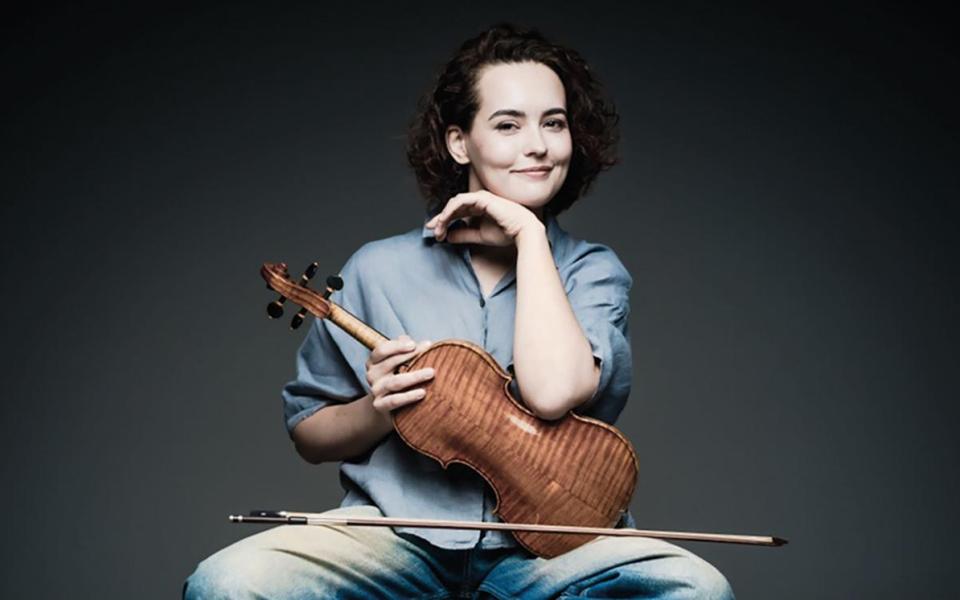Backstage pass: violinist Alena Baeva on music, imagination and vulnerability

This concert marks your Philharmonia debut, performing Bruch’s much-loved Violin Concerto No. 1. How does it feel to be joining the orchestra for the first time?
Having listened to countless recordings of this legendary orchestra, I feel honoured and excited to meet them on stage! I can’t wait really to do what we both love the most – making music together – and to see what we can create when speaking this common language.
You’ve spoken about beauty being everywhere. How does this philosophy shape the way you approach music-making?
The choice we have at what to look for in life – and how to look at it – is very powerful. To be honest, playing music is one of the most natural things for me. When I take my violin, I check in with myself. This space – one might call it imagination, where the experiences and impressions are becoming new ideas – is always alive in the mind of an artist. To observe and to listen are, probably, some of the most rewarding actions, and making music is exactly about those – listening to others, to yourself, to look from parallel perspectives, detach from being fixed on something. For me, being able to give and take, to share with fellow musicians and the audience during this enriching process is a true gift. Being able to notice, react, and feel it together – from this aperture, I think, life and music are beautiful in a very similar way.
Do you have a favourite moment in the Bruch concerto – one that always feels special to play?
Years ago, I was on tour in Germany playing Bruch. Imagine – the second concert, we are past the gorgeous violin introduction and the following exposition, violin builds up a big crescendo resulting in a fabulous tutti, and then the conductor is screaming at me, while carrying on waving his hands enthusiastically: Bravo!! Better than yesterday!” Having “yesterday” quite a good concert, I always smile in this place. I imagine there was often applause in the audience in 19th century, even sometimes in the middle of the movements, and this spontaneous expression makes me feel connected in some way to that point in a tradition.
You’ve spoken beautifully about the role of vulnerability when performing. How do you prepare yourself to embrace that?
Music happens in time; it is never the same. There is no perfection in music, either, it’s always a journey. When playing, one has to be open for this unique experience and have enough trust to enable this. When you are open, it comes with a certain risk: to allow yourself to be influenced and involved, not only to feel protected. I see this vulnerability as readiness to embark on a journey. There is always place for some magic to happen on stage. I realised long ago that I love exploring that unknown magic, and for me, being real and alive during the concert means that I am able to grow. Of course, it is a lot about balance of control and letting go!
What three things are you listening to at the moment?
Can’t make it three, sorry – but recently there was some Jesus Molina, jazz pianist; Mozart with Riccardo Minasi and Anna Prohaska; a lot of Thomas Adès, and I am in love with Alex Paxton’s music; also, just discovered that Il Tramonto (The Sunset) from Ottorino Respighi for voice and strings quartet exists.
For me, being able to give and take, to share with fellow musicians and the audience… is a true gift.

